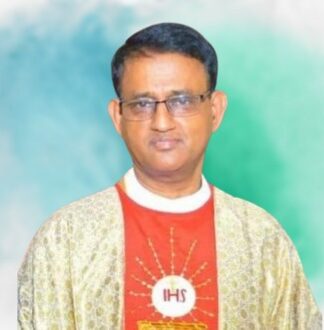19 October 2015, 6:30 pm – CANDIDATES in the
2016 elections should be obliged to clean up after their messy trail of
campaign materials, according to environmental groups.
The Mother Earth
Foundation and the UST Research Center for Culture, Education, and Social
Issues (RCCESI) pushed for “zero-waste elections” in a general
assembly at the Thomas Aquinas Research Center Auditorium last Oct 17.
Aileen Lucero, national
coordinator of the Eco-Waste Coalition, said the national Commission on
Elections should “initiate a memorandum of agreement with the
candidates” stating that whether they win or lose, they should clean up.
Lucero also warned
against the use of tarpaulins and non-recyclable campaign materials such as
confetti and balloons. The use of confetti is a violation of the Anti-Littering
Law, she said.
“Kung itong mga pulitiko ay hindi kayang
sundin ang simpleng environmental law…then hindi sila magandang leader,”
she said. “As voters, we should vote for our environment and our
environmental leaders.”
Norman Garcia,
researcher at the RCCESI and professor at the UST-Alfredo M. Velayo College of
Accountancy, conducted an online survey from Oct. 6 to 15 on the Thomasians’
“perspective on greening the 2016 elections.”
Garbage problems and
human health are the most pressing concerns for Thomasians, the survey showed.
If Thomasians were to
vote according to how pro-environment a candidate’s platform is, Rodrigo
Duterte would have won with 36 percent or 563 votes out of 1,572 respondents.
No one won as vice president, because most Thomasians selected “none of
these.”
Garcia said Thomasians
selected “none of these” because they did not have enough knowledge
on the candidates’ platforms, believed that the candidates did not have the
ability to protect the environment, and that the candidates were
“corrupt.”
Garcia called for the
education of future voters about the environment in relation to the candidates’
platforms, and the strict implementation of the Environmental Awareness and
Education Act of 2008 which states that environmental education should be
offered at all levels of education.
“We need to know their platform not only
before the elections but throughout their public service,” he said.
The assembly, titled
“Greening the 2016 Elections: Looking for Environmental Leaders,” was
in collaboration with the Faculty of Arts and Letters, the Institute of
Religion and Office for Student Affairs.















